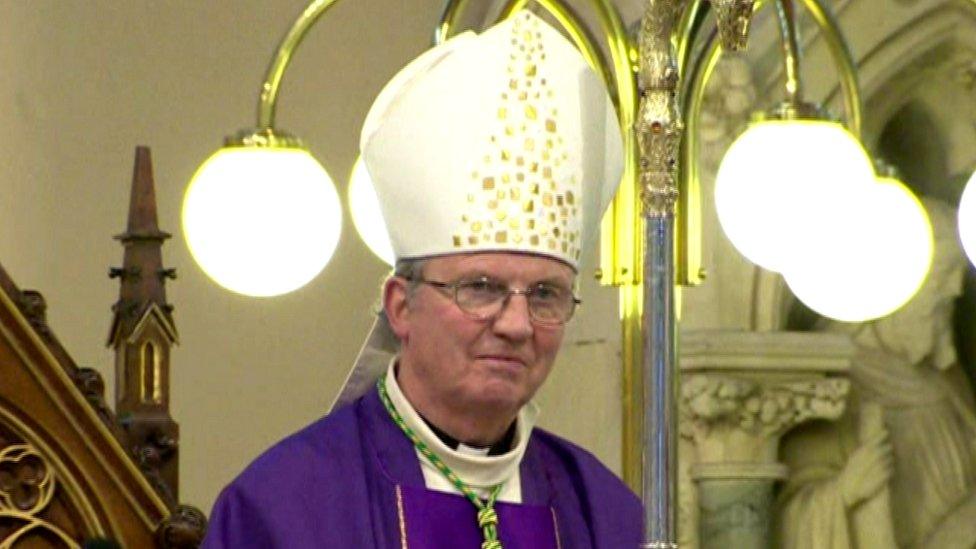Historical abuse victim redress scheme 'may cost £114m'
- Published
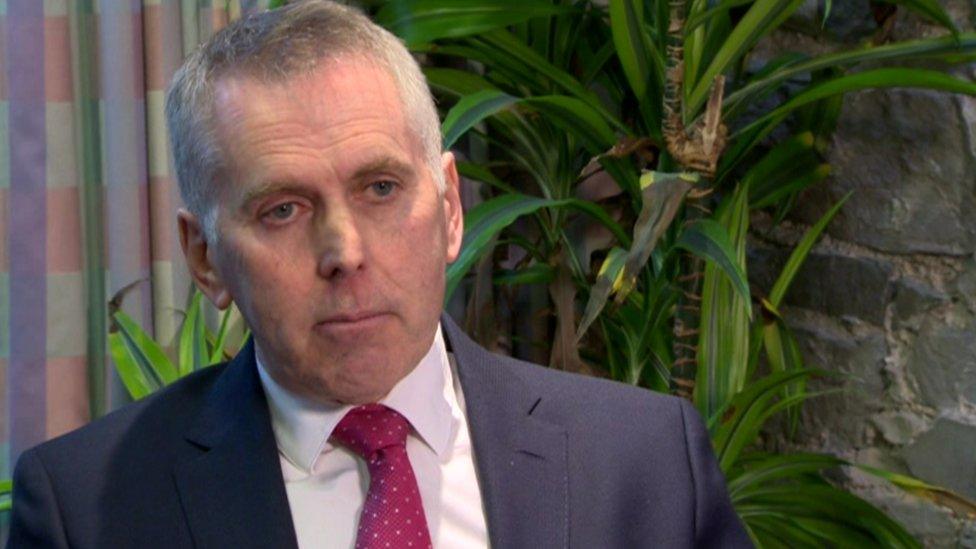
David Sterling said the historical institutional abuse issue "transcends politics"
A financial redress or compensation scheme for survivors of historical institutional abuse in Northern Ireland could cost £114m.
Officials reached that estimate on the basis of the number of claims made to a similar scheme in the Irish Republic.
They believe the average amount of compensation paid to survivors could end up being about £18,500 each.
The head of NI's Civil Service has unveiled new draft legislation to set up a compensation scheme.
David Sterling told the BBC News NI that if devolution hasn't been restored in the next three months there would be a moral responsibility on NI Secretary Karen Bradley to take action via Westminster.
The Historical Institutional Abuse (HIA) inquiry was formally set up in May 2012 and was chaired by retired judge Sir Anthony Hart.
'Transcends politics'
The estimates emerged as the Northern Ireland Civil service launched a public consultation regarding three pieces of legislation intended to put the recommendations of the Hart Inquiry into effect.
The current consultation scheme is due to run for 12 weeks, closing in February.
"The victims and survivors have suffered horribly," said Mr Sterling.
"This is an issue that transcends politics and... if at that stage we don't have local ministers in place then... there will be a moral responsibility upon the Secretary of State to take ownership of this issue."
The legislation would:
Create a new Commissioner for Survivors of Institutional Childhood Abuse and set up a redress board, consisting of judicial figures
Set out the workings of a financial compensations scheme
For someone to qualify for compensation, they will have to demonstrate on the balance of probabilities to the Redress Board that they have suffered or witnessed abuse
The next of kin of someone entitled to compensation who has died will also be entitled to 75% of the amount which would otherwise have been awarded
Some 526 survivors gave evidence to either the Historical Institutional Abuse Inquiry; or the so-called acknowledgement forum, where people could tell their stories on a confidential basis.
In the Irish Republic, roughly 10 times as many people made financial claims as came forward to give evidence, so officials calculate that about 5,000 former residents of institutions in Northern Ireland could apply for financial redress.
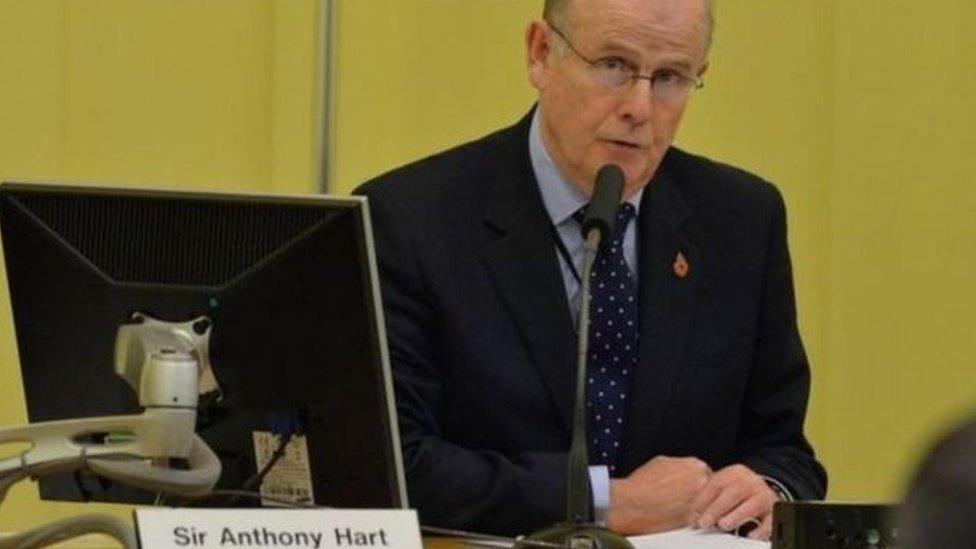
The Historical Institutional Abuse Inquiry was set up to examine allegations of child abuse in children's homes and other institutions
The Hart inquiry recommended a minimum lump sum payment of £7,500 to those who could demonstrate that they had either suffered or witnessed abuse in care homes or other institutions.
The inquiry said the payments should rise up to £80,000, depending on the severity of the abuse.
In addition, any children transported to Australia will be entitled to an extra payment of £20,000.
It is thought this could apply to around 130 people.
Unfair deal?
Some victims of institutional child abuse have already branded the recommended minimum £7,500 payment as "derisory".
Jon McCourt, chairperson of the Survivors North West group, who suffered abuse while at St Joseph's Children's Home in Derry, said he wanted a fair deal for all victims.

Sir Anthony Hart's recommendations
Compensation to survivors of abuse, including in homes/institutions not covered by HIA inquiry, and relatives of deceased
Permanent memorial erected at Stormont
Public apology to survivors
Establishment of a commissioner for survivors of institutional abuse
Specialist care and assistance tailored to needs of victims

Mr McCourt said "victims think that payments should start at £10,000 and be graduated according to the number of years spent in a residential institution.
"This would acknowledge that the longer a child was in an institution acknowledged by the Inquiry as 'harsh and brutal', the greater harm the child would have suffered.
"All we want is a fair deal and this isn't it."
- Published20 March 2018
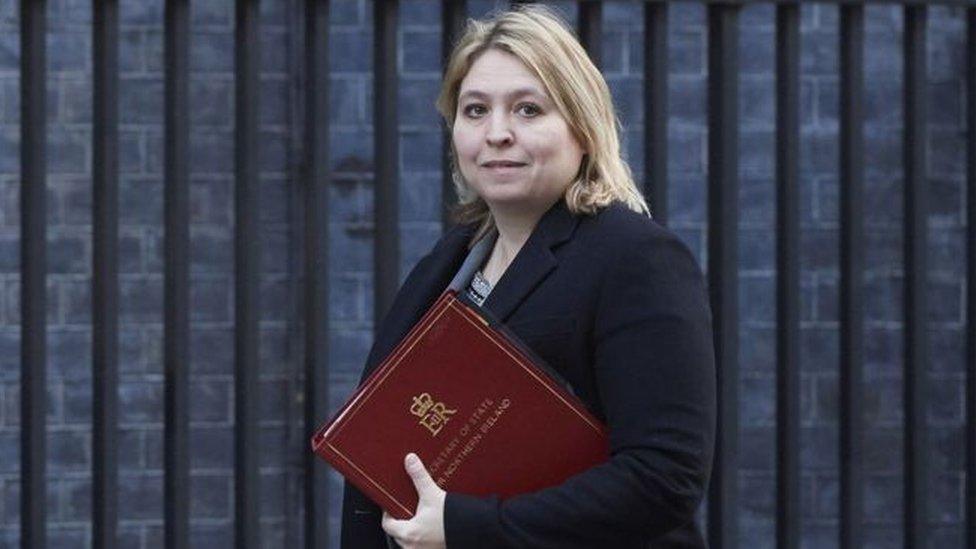
- Published25 January 2018
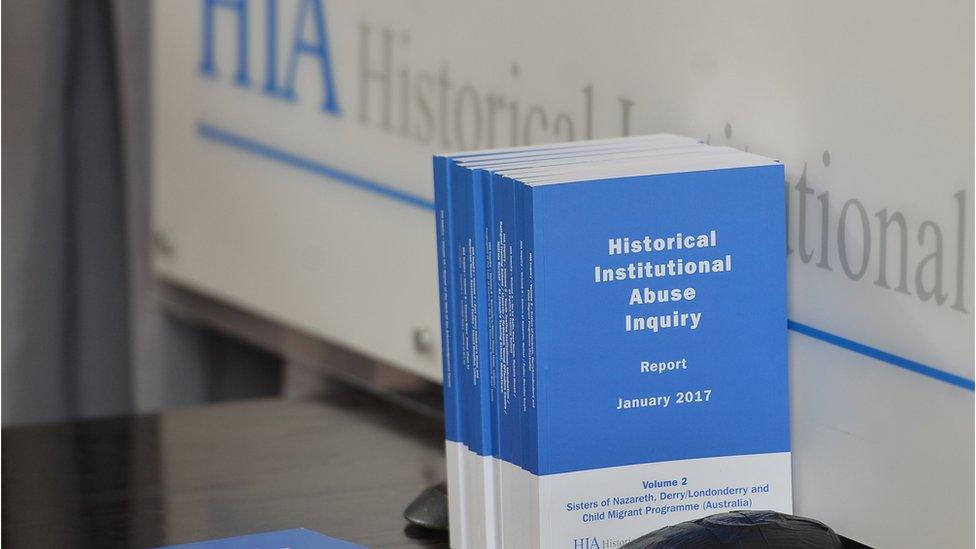
- Published24 January 2018
